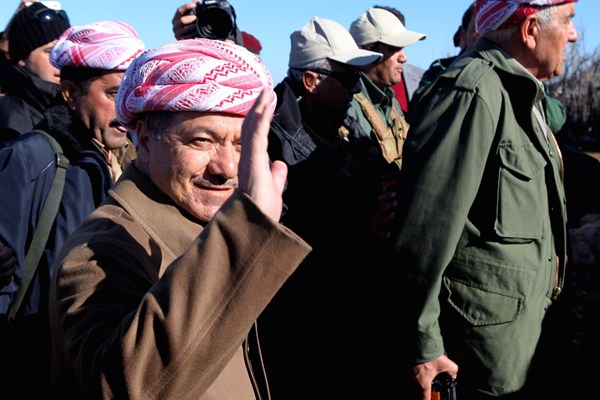In Iraqi Kurdistan, the times of plenty and stability are over. The autonomous Kurdish region in northern Iraq has been hailed for most of the past decade as an emerging Dubai in Mesopotamia and the only success story of the Iraq war. But it is descending farther into civil strife, agonizing economic recession and a political stalemate that threatens to paralyze one of America’s most potent allies in the war against the self-proclaimed Islamic State.
Last Monday, Nechirvan Barzani, the prime minister of the Kurdistan Regional Government (KRG), fired four ministers of his government, all of them members of the second-largest party in Kurdistan, Gorran, or the Movement for Change. The sacked officials included the minister of finance and the minister of peshmerga affairs, the Iraqi Kurdish armed forces fighting the Islamic State. Kurdish security forces prevented the speaker of parliament, Yusuf Mohammed Sadiq, another Gorran member, from entering the capital city, Irbil.
Barzani’s Kurdistan Democratic Party (KDP) accuses Gorran of having instigated public protests in southeastern Kurdistan earlier this month that left half a dozen protesters dead and several KDP offices ransacked. The worst wave of violence to have engulfed Iraqi Kurdistan since 2011, followed by the forceful termination of the unity government in Irbil, are just the latest escalations of a political and economic crisis in a region once hailed for its stability and booming economy.

